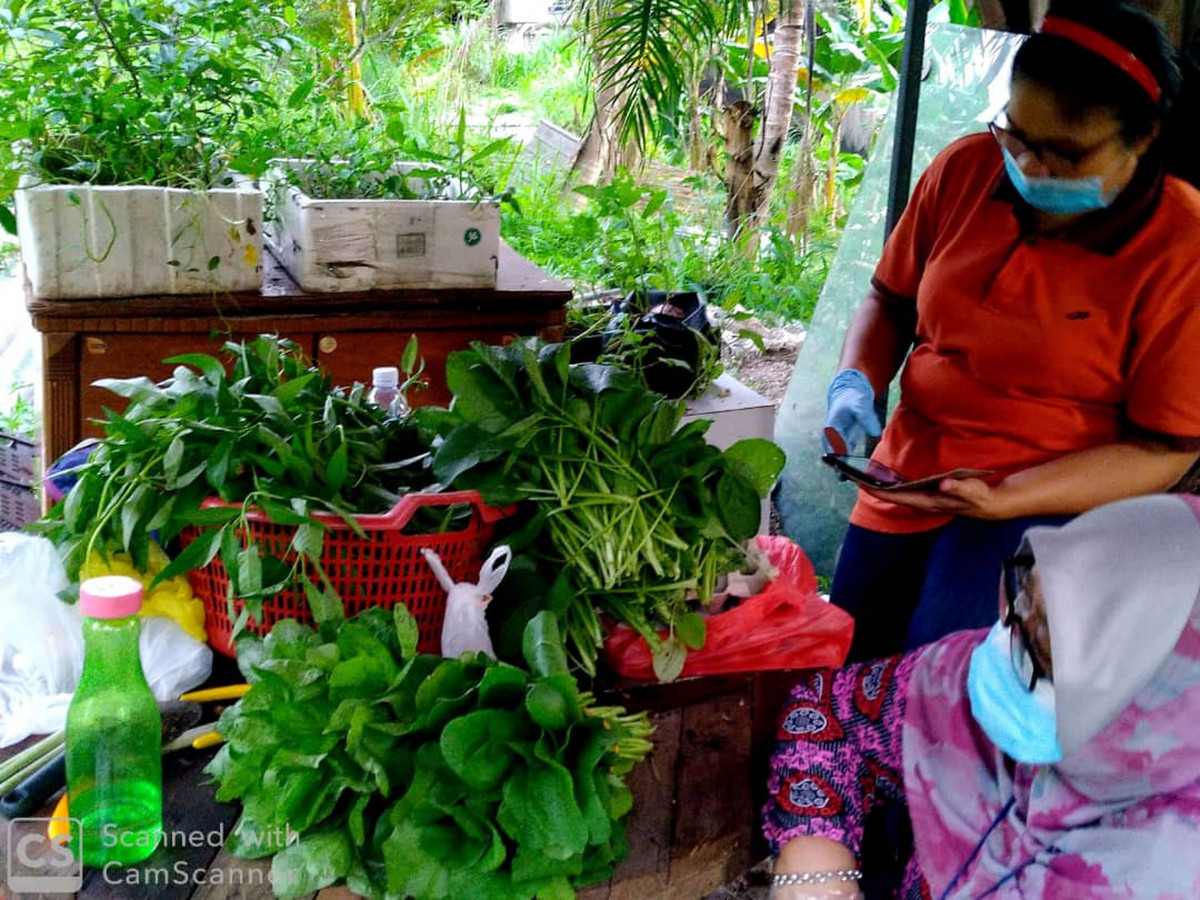Articles / Newsletter

PETALING JAYA (April 22): Many people who need to go out to work and earn daily wages have been affected by the Movement Control Order (MCO) in Malaysia which was imposed to curb the spread of the Covid-19 virus. Hence, the Mutiara Magna Community Garden in Kepong, Kuala Lumpur has been considered a 'lifesaver' as it provides fresh produce from pegaga to bok choy to this vulnerable group in the community.
The one-acre Mutiara Magna Urban Community Garden was once a squalid and deserted riverbank housing an illegal parking spot and workshop. Located at the riverbank of Keroh River in Kepong, it was given new life in 2019 and is currently managed by the Kawasan Rukun Tetangga of Pangsapuri Mutiara Magna under the River of Life Public Outreach Programme Phase 5 (ROLPOP5).
The coordinating person who is responsible for the garden as well as the distribution of the vegetables, Zuredisham Zulkefli, said although what they are doing may not seem much, it helps to sustain families whose monthly incomes are affected during the MCO.
"Besides, most markets are closed due to the MCO, making it difficult for us to get fresh vegetables. The community garden is a life-saver for us,” said Zuredisham, adding that vegetable supply to wholesale and wet markets are affected as the workforce is limited and the markets are only open at limited hours in the Klang Valley.
Meanwhile, ROLPOP5 project manager Dr K Kalithasan who is also an expert in river and waste management from Global Environment Centre, added that the idea of establishing an urban community garden near a river was aimed at reconnecting the community with the river and eventually nurture ownership and care for rivers in Malaysia.
The Global Environment Centre is a non-profit environmental organisation that has been advocating river protection and rehabilitation for the past 22 years. It was appointed by the Department of Irrigation and Drainage Malaysia in 2017 to implement the ROLPOP5.
“The current COVID-19 pandemic that led to the country implementing the MCO underlines the importance of food security. Community gardens or edible gardens are seen as ways to overcome food shortages apart from developing a resilient community and connecting society with the environment,” he said.
He also hoped that government agencies and the private sector could support more communities to build community gardens along riverbanks to encourage local food production and provide relief in the event of food supply disruption while protecting rivers.
Under the Federal Territories Ministry and Department of Irrigation and Drainage Malaysia’s River of Life Public Outreach Programme, three successful community gardens have been established, namely the AU2 Community Garden, Seri Terengganu Community Garden and the Mutiara Magna Community Garden.